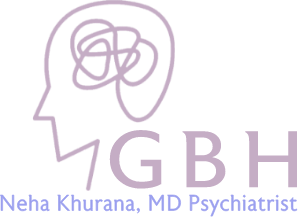
- November 3, 2025
A Comprehensive Guide to Emotionally Focused Couples Therapy
In an era where relationships face unprecedented challenges, couples therapy has emerged as a beacon of hope. Many partners ask, “Does couples therapy actually help?” This guide explores not only its effectiveness but the various benefits and considerations involved in the process.
What Is Couples Therapy?
Couples therapy is a structured approach conducted by licensed therapists aiming to improve relationship dynamics. These sessions may occur jointly, either in-person or virtually, targeting specific relationship goals such as communication improvement and conflict resolution.
Common Reasons Couples Seek Therapy
The reasons for seeking relationship talk therapy are diverse, ranging from frequent conflict and intimacy issues to trust difficulties and parenting disagreements. Some couples also pursue therapy as preventative care before marriage or following major life changes.
One Conversation Can Change Everything! Consult Dr. Neha Khurana for compassionate, evidence-based couples therapy
Does Couples Therapy Work?
With success rates ranging between 70% to 75% for modalities like Emotionally Focused Therapy (EFT) and the Gottman Method, the efficacy of couples therapy is well-documented. Success, however, hinges on mutual commitment and reliance on therapy to address issues—the real change is largely driven by the couple.
What Couples Therapy Can—and Can’t—Do?
Therapy provides tools for better communication and understanding, but it is not a magic solution for deep-seated resentment or irreconcilable differences.
Signs You May Need Couples Therapy
- Emotional disconnection
- Repetitive arguments
- Considering separation
- Communication struggles
Types of Couples Therapy
Various approaches like Emotionally Focused Therapy (EFT), the Gottman Method, Imago Therapy, and Cognitive Behavioral Therapy (CBT) each offer unique techniques to address relationship challenges.
In-Person vs Telehealth Therapy
Each format offers specific benefits: in-person sessions may enhance personal connection, whereas telehealth can provide greater accessibility and convenience.
How Much Does Couples Therapy Cost?
Therapy costs can vary widely, typically averaging $150 per session, although it can vary depending on the required treatment and psychiatrists. Options like sliding scale pricing or online platforms provide more budget-friendly alternatives.
One Conversation Can Change Everything! Consult Dr. Neha Khurana for compassionate, evidence-based couples therapy
Does Insurance Cover Couples Therapy?
Insurance coverage for couples therapy often requires a mental health diagnosis. We recommend verifying details with your provider.
Duration: How Long Does It Take to See Results?
A typical therapy journey ranges from 12 to 20 sessions, influenced by factors such as the issues at hand and the couple’s commitment to change.
How to Get the Most from Couples Therapy
- Attend consistently
- Be open and honest
- Practice learned skills between sessions
- Celebrate incremental progress
How Our Clinic Can Help
With licensed therapists and a compassionate approach, our clinic offers both in-person and virtual options within an inclusive and confidential environment. Visit our services page to learn more.
Conclusion
Couples therapy offers significant potential for healing and growth. It is a proactive step towards better communication and understanding, not an admission of failure. Begin your journey toward a healthier relationship by contacting our clinic today.
FAQs About Couples Therapy
How effective is couples therapy?
Couples therapy—especially approaches like Emotionally Focused Therapy (EFT)—has a success rate of about 70% to 75%, according to studies. Its effectiveness depends on both partners’ commitment and active participation.
Can therapy save a broken relationship?
Yes, therapy can help rebuild trust, improve communication, and heal emotional wounds. However, success relies on both partners being willing to engage honestly and make changes outside of sessions.
What happens during a couples therapy session?
In each session, the therapist helps identify recurring patterns, improve emotional awareness, and guide constructive communication. Partners learn tools to express needs and resolve conflicts without blame.
Is couples therapy helpful after infidelity?
Yes. Therapy after infidelity focuses on rebuilding trust, processing emotions, and understanding the reasons behind the betrayal. Many couples can recover and even strengthen their bond through guided support.
What if one partner refuses therapy?
If one partner is unwilling, the other can still start individual therapy to gain clarity and coping tools. Sometimes, seeing positive changes encourages the hesitant partner to join later.
